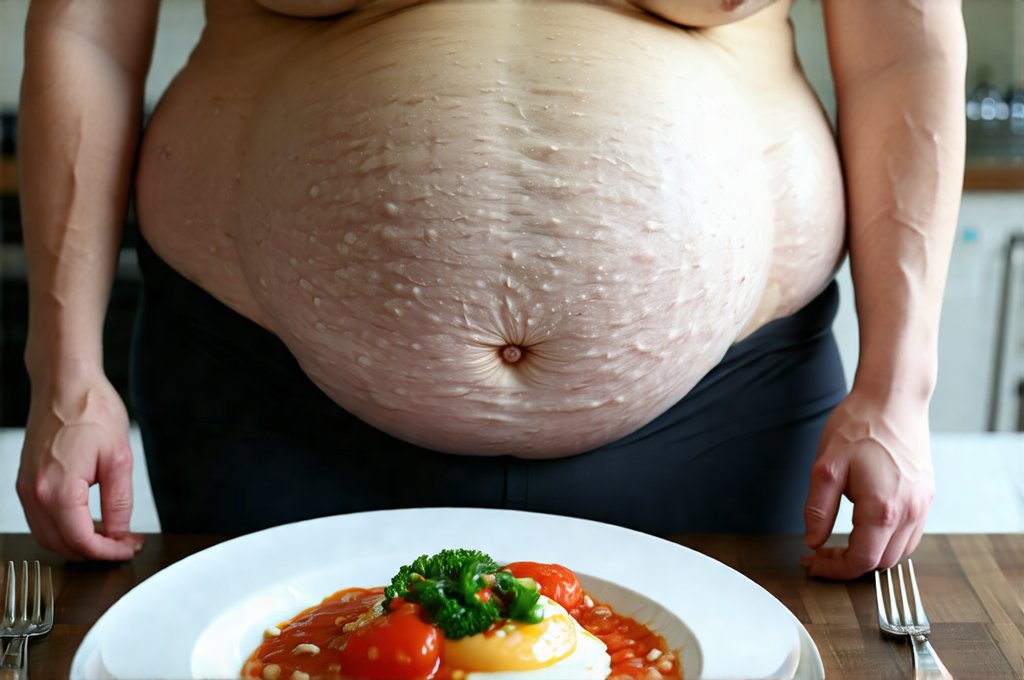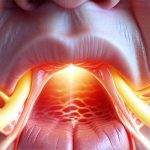That uncomfortable feeling of fullness, tightness, even distension in your abdomen after a meal is something most people experience at least occasionally. It’s often dismissed as simply “being full,” but bloating goes beyond that normal sensation. When you eat too quickly, the likelihood of experiencing this discomfort significantly increases. This isn’t just about aesthetic concerns; it impacts comfort levels and can even affect daily activities. Understanding why rapid eating leads to bloating is the first step toward mitigating its effects and improving your overall digestive wellbeing. It’s a surprisingly common issue with several interacting physiological factors at play, many of which are directly linked to how our bodies process food when we don’t give them enough time to do so effectively.
Bloating isn’t necessarily a sign of illness; in fact, it’s often a natural consequence of the digestive process. However, consistently feeling bloated after eating could indicate underlying sensitivities or habits that need addressing. This article will explore the mechanisms behind bloating when you eat too quickly, examining how our bodies react to rapid ingestion and offering insights into strategies for minimizing discomfort and promoting healthier eating habits. It’s about empowering you with knowledge so you can better understand your body’s signals and respond accordingly – not just treating symptoms but addressing potential causes.
The Mechanics of Rapid Eating & Bloating
When we eat quickly, several things happen that contribute to bloating. First, we tend to swallow more air along with our food. This is known as aerophagia. Think about it: gulping down bites doesn’t allow for proper chewing and mixing of saliva, making the process less efficient and requiring more effort – and therefore, more air intake. Second, rapid eating bypasses crucial digestive processes that happen in the mouth. Chewing isn’t just about breaking down food; it initiates digestion by releasing enzymes from saliva which begin to break down carbohydrates. Skipping this step puts extra strain on the stomach and intestines. Finally, quickly consuming large volumes of food overwhelms the digestive system’s capacity.
The digestive system is designed to process food at a certain rate. When you overload it with a quick influx of food, it struggles to keep up. This can lead to undigested food fermenting in the gut, producing gas as a byproduct – a major contributor to bloating. The intestines then work harder to move things along, potentially leading to cramping and discomfort. Furthermore, this hurried process often means we don’t fully register feelings of fullness until after we’ve already overeaten, perpetuating the cycle. It’s not just about quantity; it’s about how efficiently the body can handle what you consume. If you are consistently feeling uncomfortable after meals, it might be time to consider if GERD make you feel short of breath too.
Consider the stomach as a muscular bag that needs to expand and contract rhythmically to mix food with digestive enzymes. When food arrives too quickly in large quantities, the stomach struggles to adapt effectively. This disruption of normal gastric motility can lead to delayed emptying, further exacerbating bloating and discomfort. The feeling is often described as being “stuffed” or having a heavy, uncomfortable pressure in the abdomen. A slower, more deliberate approach allows for better digestion and reduces the strain on these vital processes. You should also avoid lying down after meals to aid digestion.
Why Chewing Matters So Much
Chewing isn’t merely preparatory work for swallowing; it’s the first critical step in digestion. The mechanical breakdown of food by chewing increases its surface area, making it easier for enzymes to access and break down complex molecules. This is particularly important for carbohydrates, as initial enzymatic breakdown begins in the mouth with salivary amylase. Without sufficient chewing, larger chunks of food reach the stomach, requiring more effort from gastric muscles and increasing the risk of incomplete digestion.
- Increased enzyme activity: Saliva contains enzymes that begin breaking down starches, making them easier to digest later on.
- Improved nutrient absorption: Thoroughly chewed food allows for better absorption of nutrients in the small intestine.
- Reduced stomach strain: Breaking down food beforehand reduces the workload on the stomach and intestines.
Furthermore, chewing stimulates the production of saliva, which contains bicarbonate – a natural antacid that helps neutralize stomach acid. This can prevent heartburn and indigestion, both of which contribute to bloating. It’s a simple act with profound implications for digestive health. Taking the time to chew each bite thoroughly isn’t just about preventing bloating; it’s about optimizing your body’s ability to extract nutrients from food and minimize digestive distress. If you often feel like something is stuck after eating, chewing thoroughly can help alleviate this sensation.
The Role of Gut Microbiota
Our gut is home to trillions of bacteria, collectively known as the gut microbiota. These microorganisms play a vital role in digestion, immunity, and overall health. When food isn’t properly broken down due to rapid eating, it reaches the large intestine where bacteria begin to ferment undigested carbohydrates. This fermentation process produces gas – hydrogen, carbon dioxide, and methane – which contributes significantly to bloating and flatulence. A healthy gut microbiota can handle some degree of fermentation, but an overwhelmed system will struggle to cope with a constant influx of undigested food.
A diverse and balanced gut microbiome is crucial for optimal digestion. Eating quickly often leads to less fiber intake (as you’re less likely to be mindful about what you’re eating), which impacts the health and diversity of your gut flora. Fiber serves as food for beneficial bacteria, promoting their growth and activity. Without sufficient fiber, harmful bacteria can proliferate, leading to dysbiosis – an imbalance in the gut microbiome. This further exacerbates bloating and can contribute to other digestive issues like irritable bowel syndrome (IBS). It’s important to note that eating too clean might also impact your gut health, as diversity is key.
- Promote a diverse diet: Include plenty of fruits, vegetables, whole grains, and legumes to support a healthy gut microbiome.
- Consider probiotic-rich foods: Yogurt, kefir, sauerkraut, and kimchi are examples of fermented foods that contain beneficial bacteria.
- Avoid excessive sugar and processed foods: These can feed harmful bacteria in the gut.
Mindful Eating as a Solution
Mindful eating is a practice that encourages us to pay attention to our food and how it affects our bodies. It’s about slowing down, savoring each bite, and being present during meal times. This directly addresses the root causes of bloating related to rapid eating. By consciously focusing on chewing thoroughly, you give your digestive system time to prepare for incoming food, reducing air intake and initiating the digestive process in the mouth. Be mindful of trigger foods as well – it’s easy to overindulge when not paying attention.
Here’s a simple mindful eating exercise:
- Eliminate distractions: Turn off the TV, put away your phone, and find a quiet place to eat.
- Take small bites: Reduce the amount of food you take with each bite.
- Chew thoroughly: Aim for 20-30 chews per bite.
- Pay attention to fullness cues: Stop eating when you feel satisfied, not stuffed.
- Savor the flavors and textures: Appreciate the experience of eating.
Mindful eating isn’t about restricting what you eat; it’s about changing how you eat. It encourages a more conscious relationship with food and your body, leading to improved digestion, reduced bloating, and increased enjoyment of meals. By slowing down and paying attention, you empower yourself to make healthier choices and respond to your body’s needs effectively. It’s a long-term strategy that promotes both physical wellbeing and a greater sense of connection with the food you consume. Remember, eating too late can also impact your digestion, so timing matters! And finally, consider if eating too quickly might be contributing to any intolerance symptoms you’re experiencing.


















